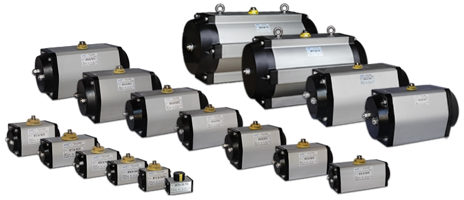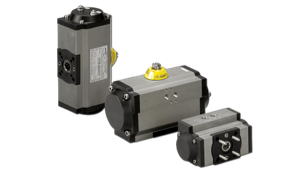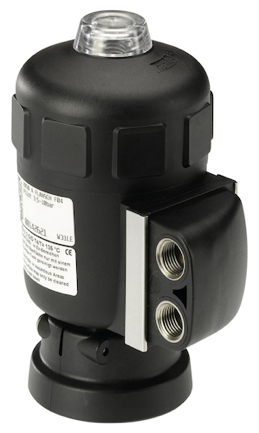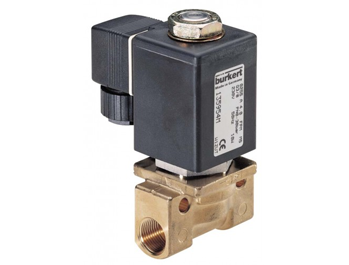
Scotch Yoke Actuator vs. Rack and Pinion
Valve actuators play an important role in controlling the movement and regulation of fluids through pipelines and hydraulic systems. These devices are integral to the seamless operation of machinery across a multitude of industries, including water treatment, oil and gas, and manufacturing. At the heart of their function is the ability to accurately open, close, or modulate valves, with a high degree of precision to ensure processes run smoothly and efficiently.
Scotch Yoke and Rack and Pinion actuators are both well-known and widely used for their reliability and durability, but both are distinct operational mechanisms that each come with unique benefits. Scotch Yoke vs Rack and Pinion is an endless debate among plant managers and engineers across multiple industries, so let’s sort it out once and for all. We are going to take a closer look at their functions, benefits, and how they can each meet the specific demands of your application. So, who wins between Scotch Yoke vs Rack and Pinion? Let the battle commence.
Understanding Valve Actuators
First and foremost, we have to understand the value of valve actuators. They are integral components in many industrial settings. They are tasked with the crucial role of managing the flow of fluids with unmatched precision. These simple but critical devices enable valves to operate automatically, ensuring that operations maintain optimal efficiency while adhering to the strictest safety standards. With the ability to be powered by various sources, including pneumatic, hydraulic, and electric options, actuators are versatile tools designed to meet diverse operational needs across a huge range of industrial and commercial environments.
When choosing the right actuator for your application, you must consider several important factors. These include the torque required to operate the valve, the speed at which the valve must open or close, and the conditions under which the actuator will operate. These decisions impact not only the performance and reliability of your process control but also the longevity and maintenance requirements of the equipment itself.
The Scotch Yoke Actuator
The Scotch Yoke Actuator is distinguished by its unique ability to convert linear motion into rotational motion, a feature that makes it particularly well-suited for heavy-duty industrial applications. This type of actuator is characterised by its durable design, which allows it to deliver high torque output. This makes it ideal for operating large valves that require significant force to move or for operating in high-pressure systems. Its operational mechanism, though simple, is highly effective. Scotch Yoke Actuators provide a reliable solution for controlling fluid flow in challenging environments where reliability is a crucial factor for safety, such as the oil and gas sector.
Despite its strengths, the Scotch Yoke Actuator does have limitations, including a comparatively limited speed range and the potential for increased wear due to the friction generated during operation. These factors necessitate regular maintenance to ensure long-term reliability and performance.
The benefits often outweigh these considerations, however, especially in applications where strength and durability are required. With its suitability for high-torque applications, combined with a compact design, Scotch Yoke Actuators are a compelling choice for operations where space is at a premium and performance cannot be compromised.
The Rack and Pinion Actuator
The Rack and Pinion Actuator is often chosen for its exceptional ability to offer precise control over valve operations in a wide array of industrial settings. This type of actuator utilises a gear mechanism where the pinion, a circular gear, meshes with a rack, a linear gear, to convert linar motion into rotational motion. This design is both efficient and compact, making it a popular choice for applications where space is limited but accuracy is critical.
One of the most significant advantages of the Rack and Pinion Actuator is its high speed of movement, which makes it particularly well-suited for situations where rapid operation is necessary. This feature, combined with its precise control, allows for fine adjustments in flow rates. This makes it an ideal solution for automated systems that demand quick and accurate responses.
Though they have these benefits, it is important to note that Rack and Pinion Actuators may have a lower torque output compared to Scotch Yoke Actuators. This means they might not be the best fit for applications requiring the operation of very large valves or those that need a substantial force to open or close such as in high-pressure systems. For many industrial processes, the Rack and Pinion’s efficiency, compact size, and precision far outweigh this limitation, offering a versatile solution that meets the needs of a diverse range of applications.
Scotch Yoke Actuator vs Rack and Pinion – Which Wins?
The victor in the battle between a Scotch Yoke and a Rack and Pinion actuator depends on the specific requirements of your industrial application. The Scotch Yoke is heralded for its high torque capabilities, making it exceptionally suitable for operations that involve large valves or those that require substantial force for a complete open and closing action.
The Rack and Pinion actuator is celebrated for its precision and speed, attributes that make it indispensable in situations demanding quick and accurate adjustments. Its compact design is a big advantage in environments where space is at a premium, offering a solution that combines efficiency with versatility.
Your application’s unique demands decide which one is left standing at the end of the bout. Consider the operational environment, the physical space available, and the nature of the task. Whether your priority lies with the durable performance and high torque of the Scotch Yoke or the compactness, speed, and precision of the Rack and Pinion, understanding the strengths and limitations of each will help you select the actuator that aligns with your operational requirements and best optimises your processes.
We have a huge range of actuators of all types for you to choose from, and spare parts to help you maintain your actuators and keep your systems operating, all from the best brands in the business. Whether you need Scotch Yoke Actuators, Rack and Pinion, or you are unsure which best suits your needs, we can help. Get in touch today and we will find the right solution, tailored to support your operations and keep your processes running.



